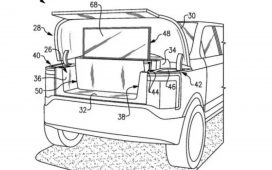
Chinese authorities have decided to remove restrictions on Tesla’s cars after it passed the country’s data security requirements, marking a significant milestone for the US company in the world’s largest auto market.
The approval marks a significant step toward introducing Tesla’s Full Self-Driving (FSD) technology in China. While Tesla has offered FSD upgrades to its Autopilot driver assistant in the country for years, data security and compliances have been why Tesla has been limited to features like automated lane-changing.
After Tesla CEO Elon Musk’s surprise visit to China, the carmaker announced on April 28 that Tesla’s Model 3 and Model Y vehicles were among the models subjected to testing and deemed compliant with China’s data security standards.
Alongside Tesla’s Model 3 and Model Y, several other new energy vehicles manufactured by BYD, Lotus, Nezha, Li Auto and NIO also have met China’s data security standards, but Texas-based Tesla became the only foreign company on the list.
For Tesla, “it’s a good thing, because it’s one more domino knocked down, in order for them to be able to potentially get the data from those cars out to America,” Mark Rainford, an influencer in the automotive industry and host of the YouTube channel Inside China Auto told China Daily.
He said Tesla has “this supercomputer that is currently learning how to teach autonomous cars based on what it sees. So it’s looking at how humans react to certain situations on the road. And obviously, China is Tesla’s second-largest market that has a lot of cars that they can get data from,” Rainford said.
“But currently, they can’t submit that data to the supercomputer to teach you how Chinese cars or Chinese drivers work and how Chinese roads work. So if they are able, at some point to get that data out to the US, then it will be a big benefit for them,” he said.
Since 2021, Chinese officials have required Tesla to store all data collected by its cars in China, specifically in Shanghai, prohibiting the transfer of any such data back to the United States.
Improving Tesla’s self-driving technology is important for the company with its current product range aging amid a rapid influx of new models from Chinese manufacturers, who are making brand new cars almost every week.
“All of those other brands, they are allowed to have the autonomous driving systems in China and Tesla can’t, that started to impact Tesla sales,” said Rainford.
Junheng Li, CEO and head of research at JL Warren Capital, said on X that the likelihood of Tesla rolling out a “supervised” version of FSD in China is “extremely unlikely”.
There’s “no strategic value” for Beijing to facilitate Tesla’s FSD adoption in China when there are numerous high-quality local alternatives, such as Xpeng’s driver-assist software, Li said.
Tesla shares have fallen significantly in recent months, plummeting by more than 33 percent this year as of April 4.
Despite growth in the global electric vehicle market, Tesla’s sales growth has decreased. The company said last month that it delivered 387,000 cars worldwide, down 8.5 percent from the year before. Tesla also announced that it would lay off more than 10 percent of its global workforce to cut costs.
“While Tesla still remains very popular as a brand, they do have a challenge, which is that the local competition (that) is increasing is better,” said Rainford.
Last year, China’s BYD outpaced Tesla for the second year in a row, producing more than 3 million new energy vehicles and becoming the world’s largest electric vehicle seller, while Tesla made 1.84 million cars.
Rainford said his audiences from Europe and the US “were very surprised” to see China’s car industry. “Most people didn’t believe or didn’t know that China had this kind of car industry,” he said.
“They were amazed at what they were seeing. So I would say probably 80 percent of people are like, ‘Wow, this is incredible. I’ve never seen this before.’ And then you get of course, 20 percent of people who are like, ‘Yeah, but it’s Chinese. It’s all rubbish. It’s not very good.'”
“I think people are surprised and excited to see these cars come to their countries, because they don’t have so much choice. Certainly not affordable choices in Europe and America. And they want to see them, especially the Americans. A lot of Americans want Chinese cars to be able to go there. But obviously they can’t right now,” said Rainford.
Tesla, being one of the most popular vehicles in China, had been banned from Chinese military installations and some government-affiliated venues, including meeting halls and exhibition centers.
Currently, the main benefit to Tesla to pass the country’s data security requirements is that some customers who were unable to go to some restricted locations, can now go to those restricted locations, said Rainford.
Tesla shares rose sharply on April 29 after the company received approval from Beijing to introduce its advanced service in China.
Tesla stock has gained about 39 percent over the past five days as investors reacted to news about Musk’s visit to China. That’s the best five-day run since July 2020, when shares rose 42.9 percent over the span that ended July 6.
“It’s a sign from China, not only to the authorities, but also to consumers who are going to buy Chinese cars abroad, that their cars have the strictest data security, because of course, there is anti-China sentiment outside of China and people are concerned that the cars are going to be switched off by the governments and things like that,” Rainford said.
“I think it’s a good sign for consumers … if they listen to this and they trust that information,” Rainford said.
The Biden administration earlier this year announced an investigation into whether imported cars from China pose national security risks due to their ability to potentially gather sensitive data about Americans driving them.
“I don’t personally see the US giving any massive concessions to Chinese brands,” said Rainford. “For them, their biggest concern is losing the status of the number one economic superpower in the world.
“I don’t see them wanting to help out China in any way in that form. Because if they let all the Chinese brands into America, they’re going to cause a lot of damage to the American brands,” he said.
While Biden’s action doesn’t amount to a ban on Chinese imports, the investigation may prompt regulations to prevent China from using advanced technology in electric and connected vehicles that tracks drivers, and their personal data.
The US market may favor big engines and pickup trucks, but there’s a growing demand among many Americans for small, affordable electric vehicles. And right now, they have no choice in that area, said Rainford.
“So the American people want it, the American government say that they want it. But as of yet, they’re not currently seeming to be open to the Chinese car companies selling cars without tariffs,” he said. “So I think it’ll still take some time.”
He said that he believed that with the public and government expressing interest in green alternatives, the shift toward electric cars is inevitable for a cleaner, more sustainable future.
minluzhang@chinadailyusa.com








